Categorias
- iridologia (226)
- Leitura dos olhos (24)
- Software QR (15)
- Blogue (302)
- Ilustração da iridologia (35)
- curso online de iridologia (54)
- iridologia (59)
- Exposição (2)
- Notícias (423)
Rooted in holistic health philosophy, eye reading embraces the concept that our bodies function as interconnected systems rather than isolated parts. This practice suggests that imbalances or dysfunctions in organs and tissues may manifest as visible markings or patterns in the eyes, offering clues about one’s health journey before conventional symptoms appear.
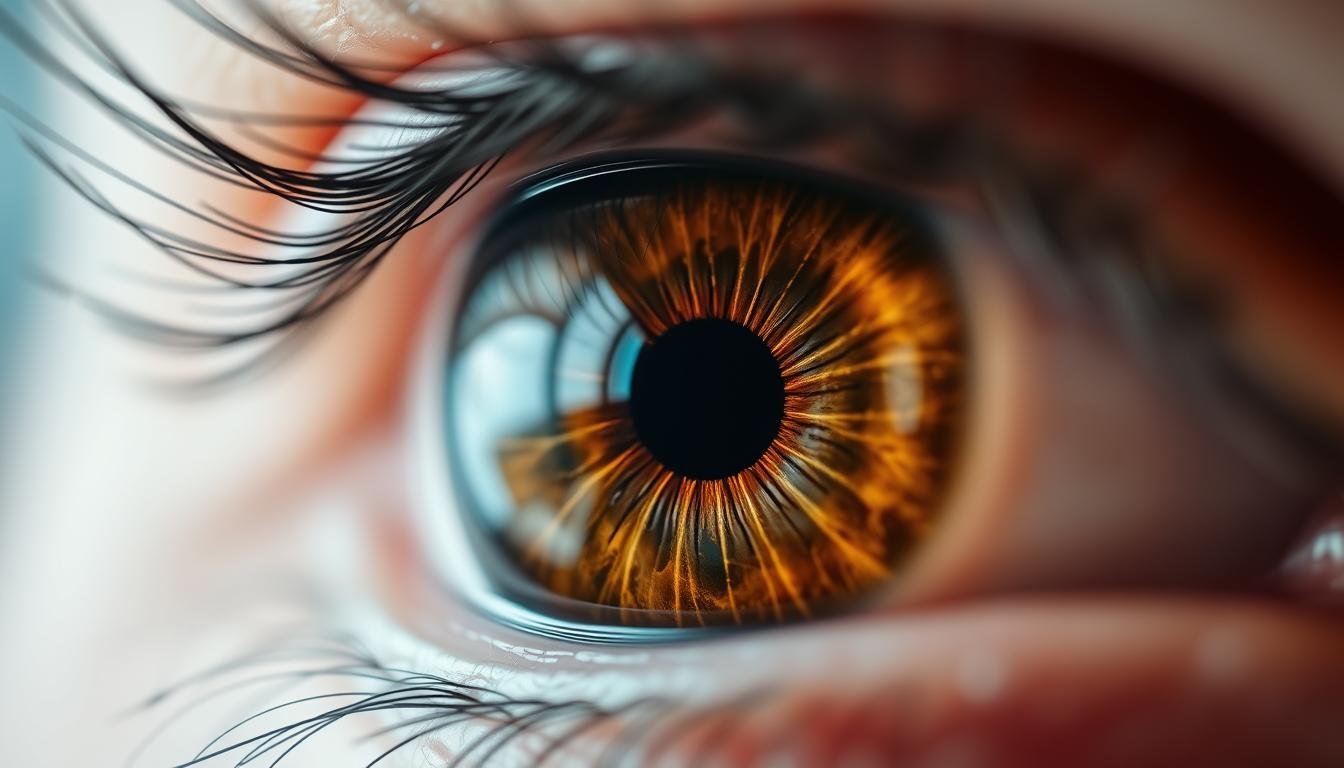
Eye reading practices trace back thousands of years across multiple cultures. Ancient Chinese medicine incorporated eye analysis as part of its diagnostic toolkit, while Egyptian physicians documented correlations between eye characteristics and health conditions. However, modern iridologia—the most structured form of eye reading—emerged in the 19th century through the work of Hungarian physician Ignatz von Peczely.
Von Peczely reportedly noticed changes in his pet owl’s iris after the bird suffered a broken leg. This observation sparked his lifelong study of iris patterns and their potential relationship to health conditions. By the late 1800s, he had developed the first iris chart mapping specific zones to corresponding body systems.
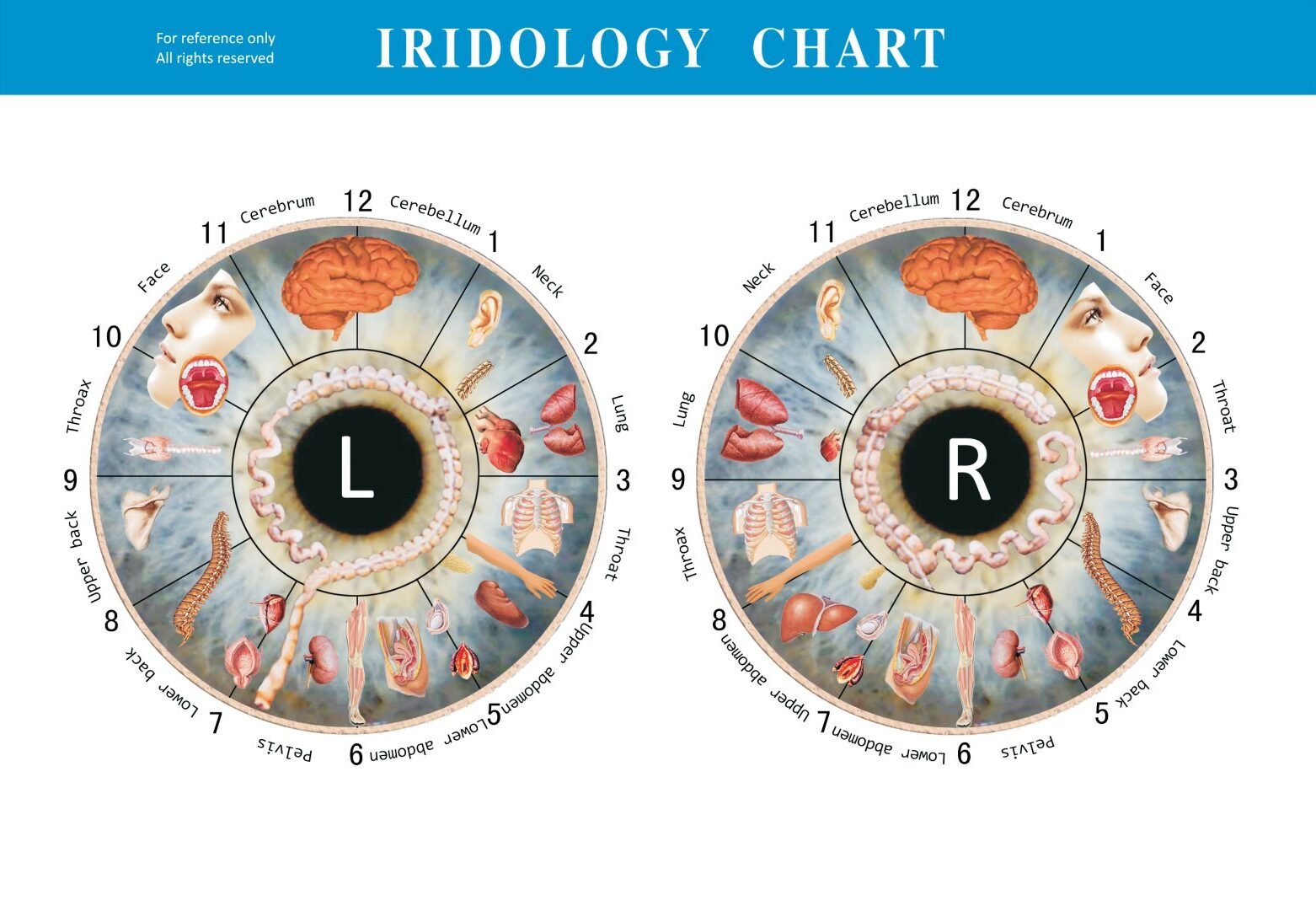

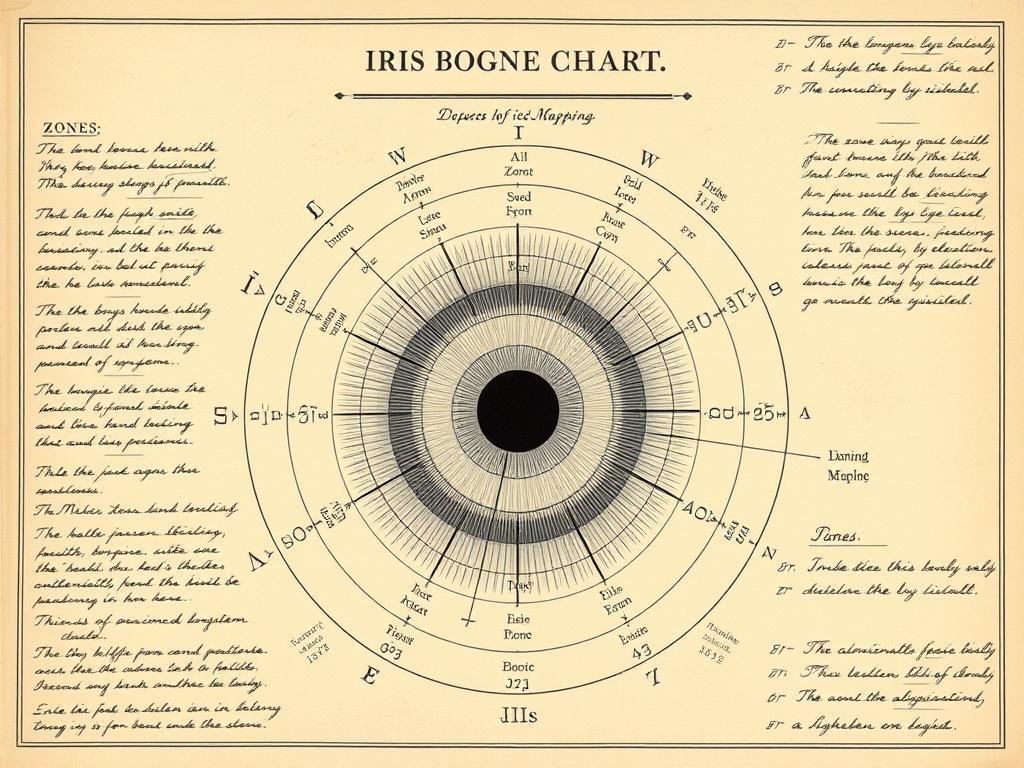
Modern eye reading practitioners analyze several key aspects of the eyes:
The scientific community remains divided on eye reading’s validity. Conventional medicine acknowledges that certain systemic conditions can manifest in the eyes—diabetes may cause retinal changes, and liver dysfunction can lead to scleral yellowing. However, many medical professionals question the extensive organ-to-iris correlations proposed by iridologists.
Research results have been mixed, with some studies showing poor diagnostic accuracy while others suggest potential correlations worth further investigation.
| Eye Reading Method | Focus Area | Claimed Diagnostic Capabilities |
| Iridologia | Íris | Organ function, constitutional strengths/weaknesses, toxin accumulation |
| Esclerologia | Sclera (white of eye) | Acute conditions, inflammation, vascular health |
| Pupil Diagnostics | Pupil | Nervous system function, adrenal health, stress response |
In holistic health settings, eye reading serves as one tool within a comprehensive assessment approach. Practitioners don’t use it in isolation but rather as part of a broader evaluation that may include health history, physical examination, and other diagnostic methods.
Eye reading practitioners often identify potential nutritional imbalances through specific iris signs. For example, a white ring around the iris (called arcus senilis) might suggest cholesterol imbalances, while certain pigmentation changes could indicate mineral deficiencies.
Based on these observations, practitioners may recommend targeted detoxification herbs or nutritional protocols designed to address the underlying imbalances rather than just treating symptoms.
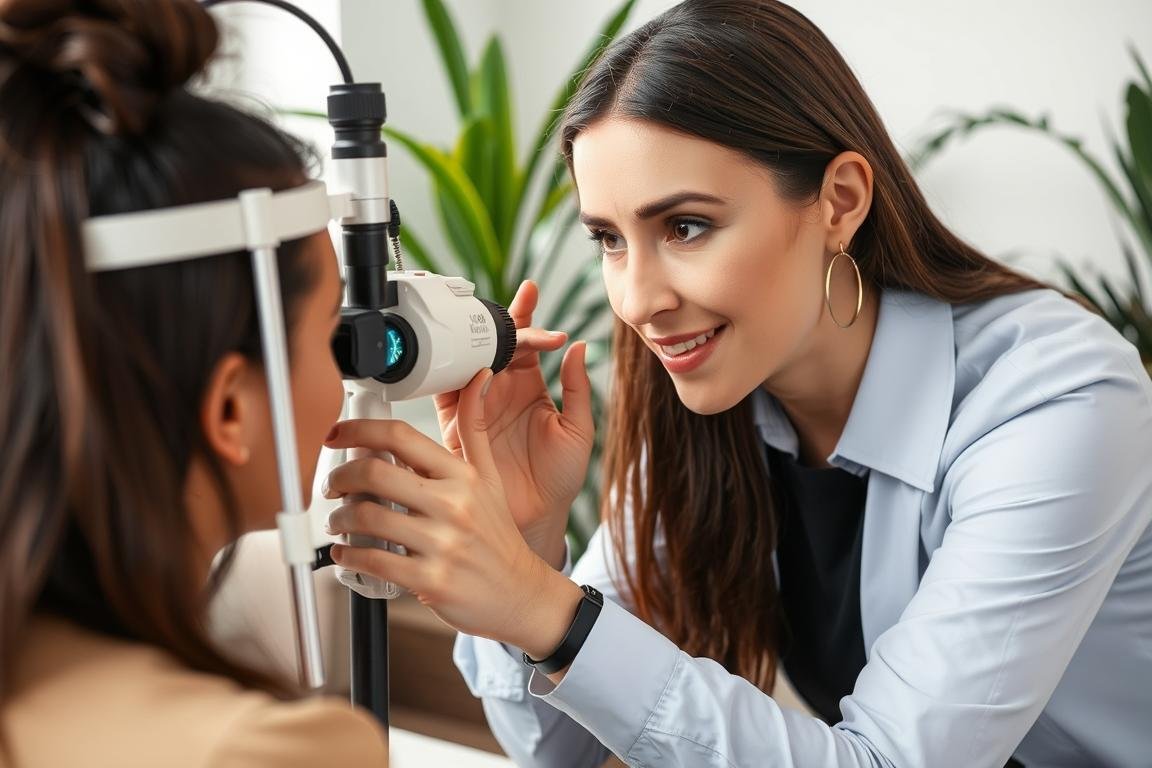
Many holistic practitioners use eye reading to identify potential toxic accumulations in the body. Dark spots or unusual markings in specific iris zones may suggest toxin buildup in corresponding organs or tissues.
This information guides detoxification protocols that might include dietary changes, herbal support, or lifestyle modifications to enhance the body’s natural elimination processes.
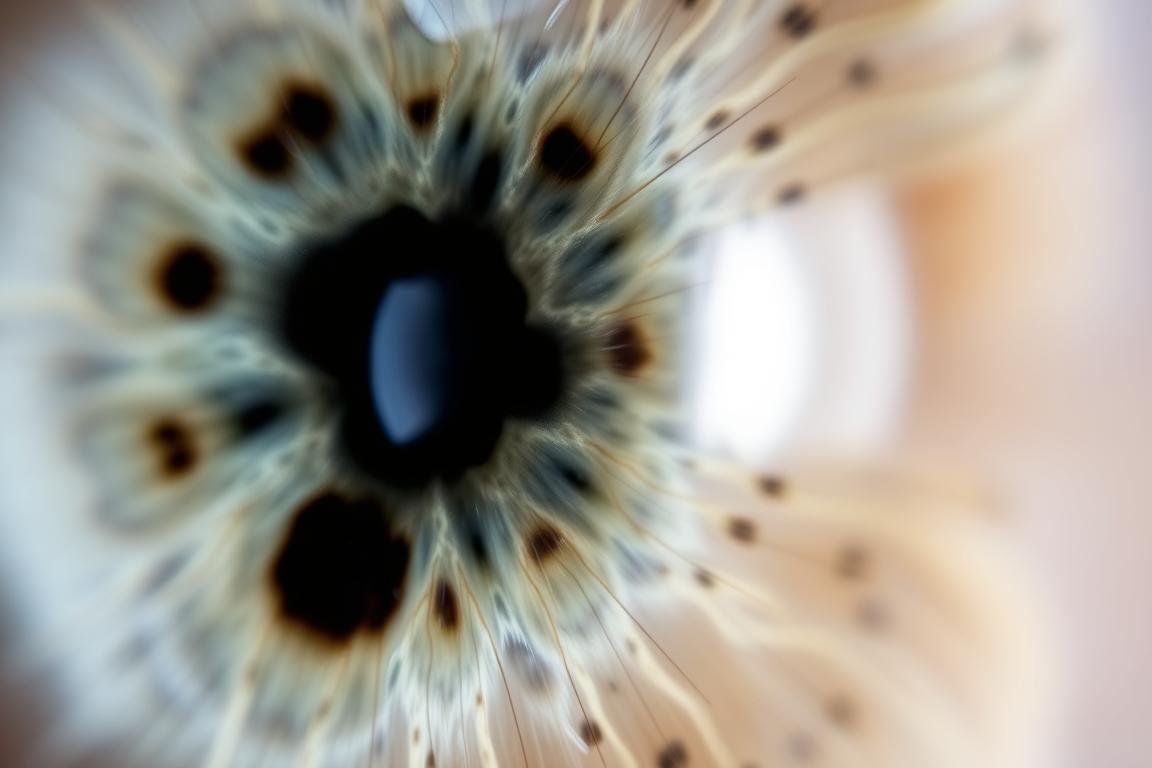
Central to iridology is the concept of iris mapping, where different zones of the iris correspond to specific body systems or organs. This mapping allows practitioners to focus their assessment on areas of potential concern.
| Zona de íris | Linked Body System | Common Signs |
| Quadrante superior | Cérebro, sistema nervoso | Nerve rings, spoke-like fibers |
| Anel interno | Sistema digestivo | Darkening, crypts, lacunae |
| Middle Ring | Circulatory, Respiratory Systems | Color changes, fiber separations |
| Anel externo | Skin, Lymphatic, Musculoskeletal | Manchas de pigmentação, alterações estruturais |
Eye reading findings frequently guide the selection of complementary therapies. For instance, if iris analysis suggests digestive weakness, a practitioner might recommend specific acupuncture points, herbal formulations, or Ayurvedic body type-specific dietary adjustments.

Meridian imbalances identified through eye reading may inform specific acupuncture point selection.

Specific iris markings guide herbalists in selecting appropriate botanical remedies.

Dietary protocols tailored to address imbalances revealed through eye analysis.
By integrating eye reading with these complementary approaches, practitioners aim to create truly personalized wellness plans that address the root causes of health concerns rather than just managing symptoms.
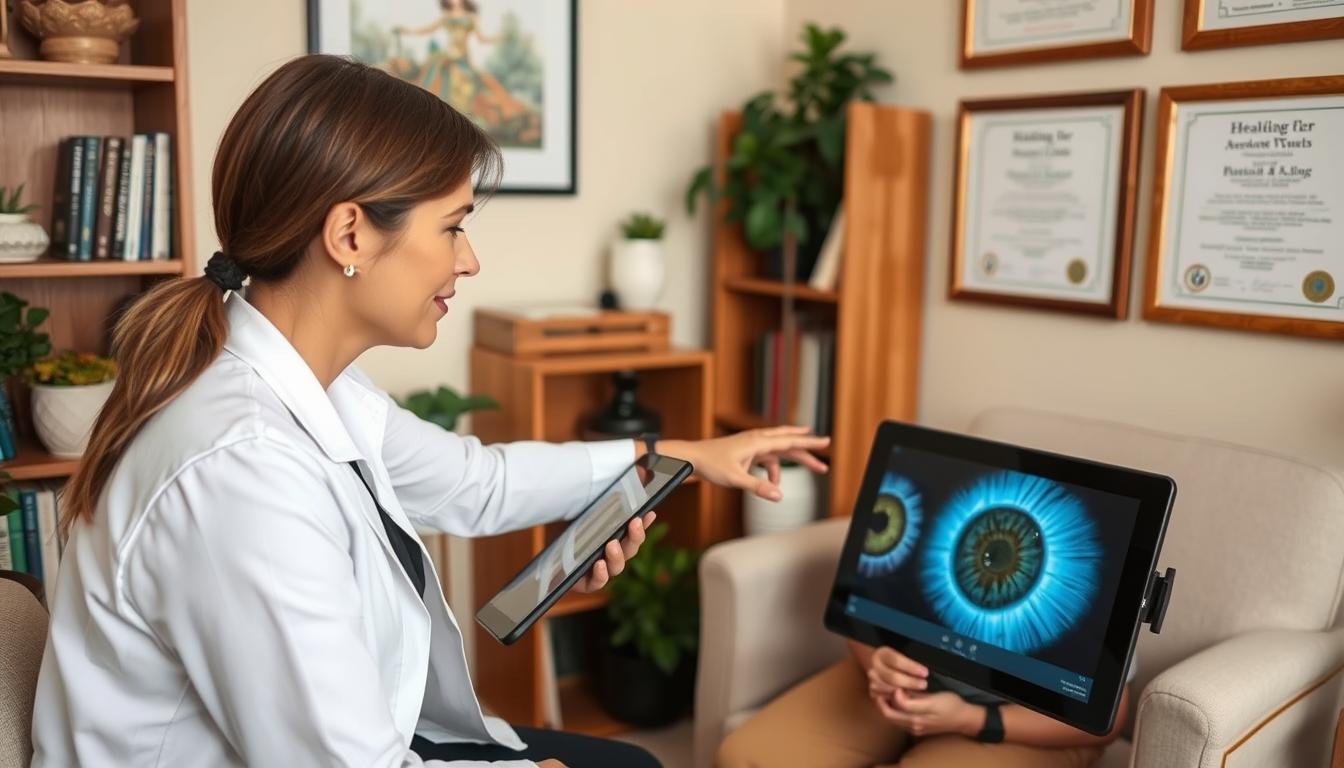
Sarah, a 42-year-old teacher, had struggled with intermittent digestive discomfort for over a decade. Despite multiple conventional tests showing no significant abnormalities, her symptoms persisted. During an eye reading session, her practitioner noted pronounced markings in the digestive zone of her iris, specifically in areas corresponding to the small intestine.
The iris also showed signs suggesting potential food sensitivities and low stomach acid production. Based on these observations, her practitioner recommended a customized elimination diet, specific digestive herbs, and targeted probiotics. Within three months, Sarah reported an 80% reduction in symptoms and identified several previously unknown food triggers.
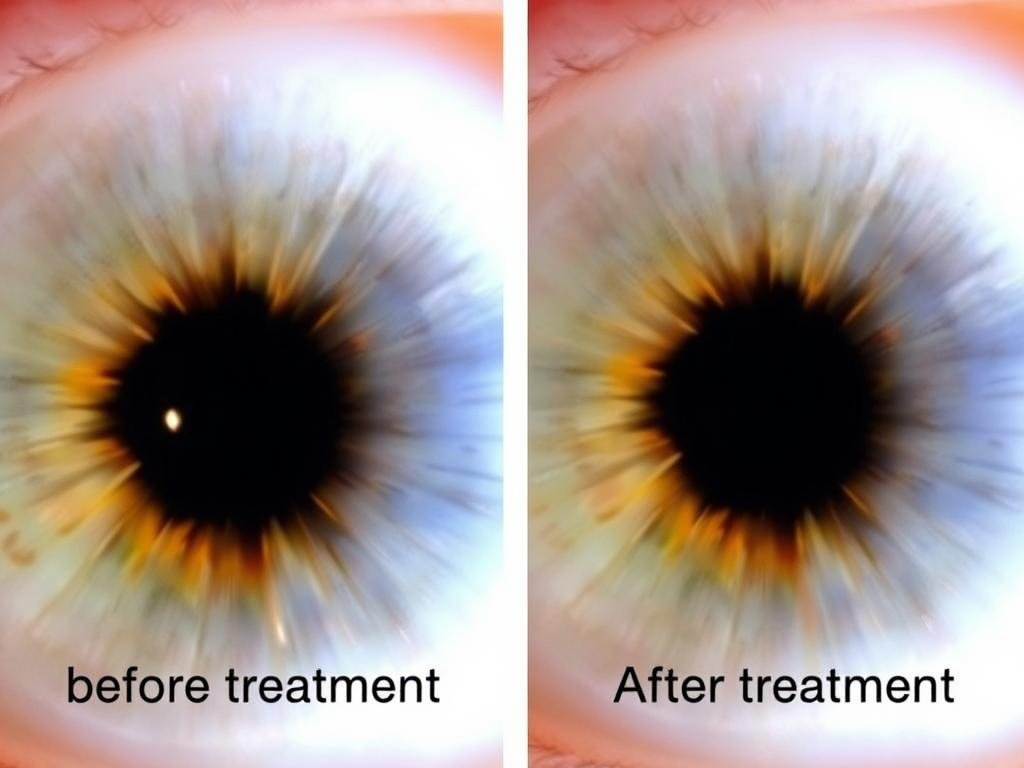
Michael, a 35-year-old software developer, sought help for persistent fatigue that conventional blood tests couldn’t explain. His eye reading assessment revealed signs of adrenal stress in both irises, along with indications of potential liver congestion and mineral imbalances.
His holistic protocol included adaptogenic herbs for adrenal support, a liver-supportive diet, and specific mineral supplementation based on the eye analysis. The practitioner also recommended stress management techniques after noting iris signs of nervous system strain. After following this protocol for four months, Michael reported significantly improved energy levels and better stress resilience.
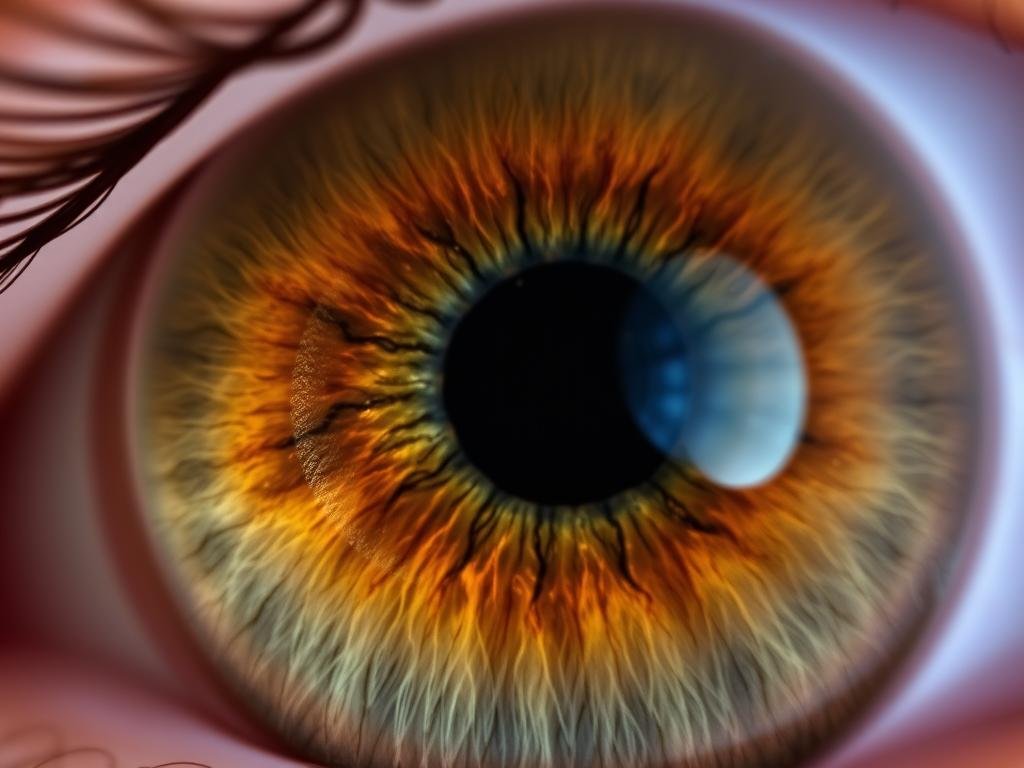
While these cases provide interesting examples of how eye reading can guide holistic treatment approaches, it’s important to note that they represent anecdotal evidence rather than controlled clinical studies. The improvements experienced may result from multiple factors, including dietary changes, lifestyle modifications, and the placebo effect.
Nevertheless, many holistic practitioners report that eye reading provides valuable insights that help them develop more personalized and effective treatment protocols for their clients.
The conventional medical community has expressed significant skepticism about eye reading practices, particularly iridology. Critics point to several controlled studies that found iridologists unable to accurately identify patients with known kidney disease or other conditions based solely on iris examination.
Skeptics argue that while certain systemic conditions do manifest in the eyes, the extensive organ-to-iris correlations proposed by iridologists lack sufficient scientific validation. They suggest that positive outcomes may result from the generally beneficial lifestyle and dietary recommendations that often accompany eye reading consultations.
Responsible practitioners acknowledge the limitations of eye reading and adhere to important ethical guidelines:
Nota importante: Eye reading should always be used as a complementary tool within a holistic health approach, not as a standalone diagnostic method. It may provide useful insights about potential imbalances and constitutional tendencies, but should never replace appropriate medical care for acute or serious health conditions.

Eye reading continues to gain popularity within holistic health communities as people increasingly seek personalized, whole-person approaches to wellness. While scientific validation remains limited, many practitioners and clients report valuable insights and positive outcomes from incorporating these techniques into broader holistic protocols.
The most promising approach appears to be one that integrates eye reading with other assessment methods and remains open to both traditional wisdom and emerging research. As interest in integrative medicine grows, we may see more rigorous studies exploring the potential correlations between eye characteristics and health conditions.
For those interested in exploring eye reading, it’s essential to work with qualified practitioners who maintain appropriate professional boundaries and integrate their observations with other health information. Look for practitioners who have completed comprehensive training programs and who approach eye reading as one tool within a holistic framework rather than as a miracle diagnostic method.
Whether you’re a health professional interested in adding these skills to your toolkit or someone curious about what your eyes might reveal about your health, approaching eye reading with an informed, balanced perspective will help you maximize its potential benefits while avoiding potential pitfalls.
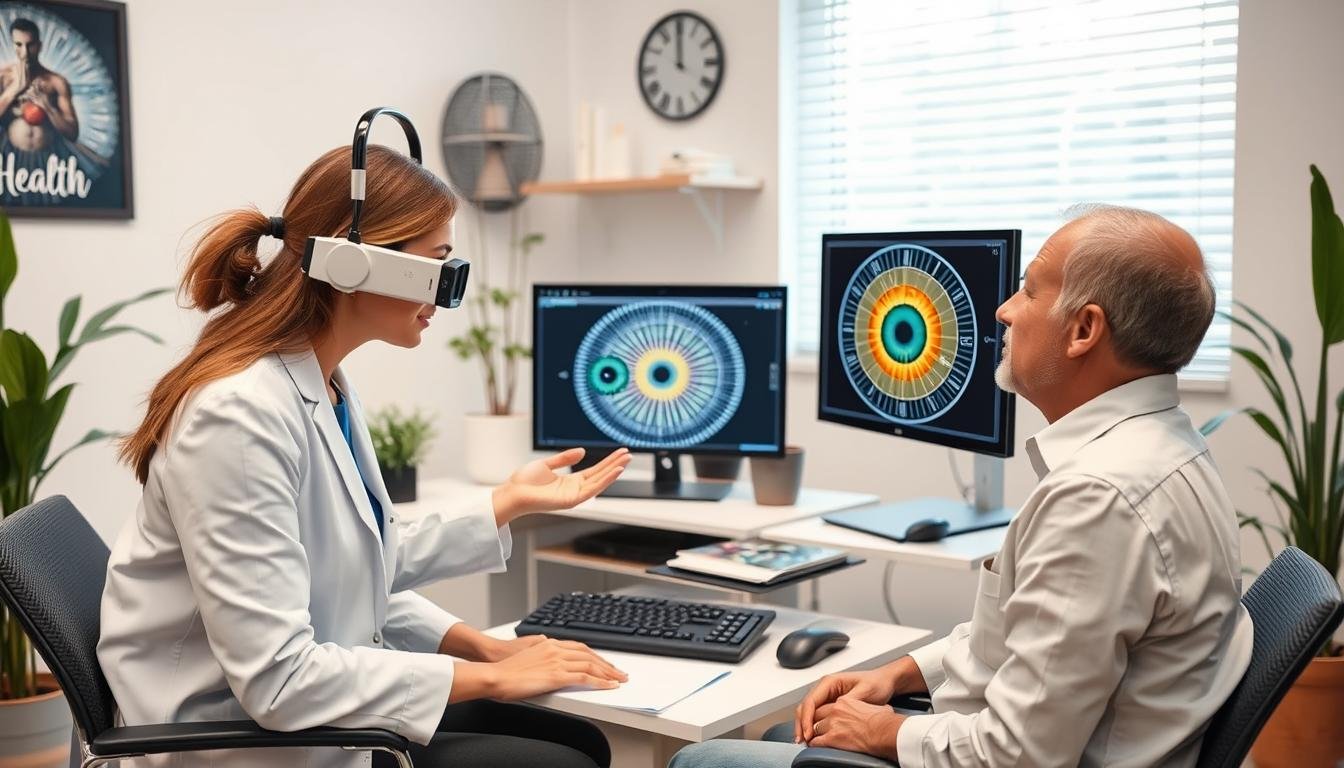
Interested in learning how eye reading might complement your wellness journey? Connect with a certified practitioner who can provide personalized insights based on your unique eye characteristics.
Expand your knowledge about holistic diagnostic approaches with these related topics:
“The eyes are not just windows to the soul, but mirrors reflecting the state of our entire being. When we learn to read these reflections with wisdom and discernment, we gain valuable insights for our healing journey.”
SOFTWARE DE IRIDOLOGIA MAIKONG Instalação e operação
